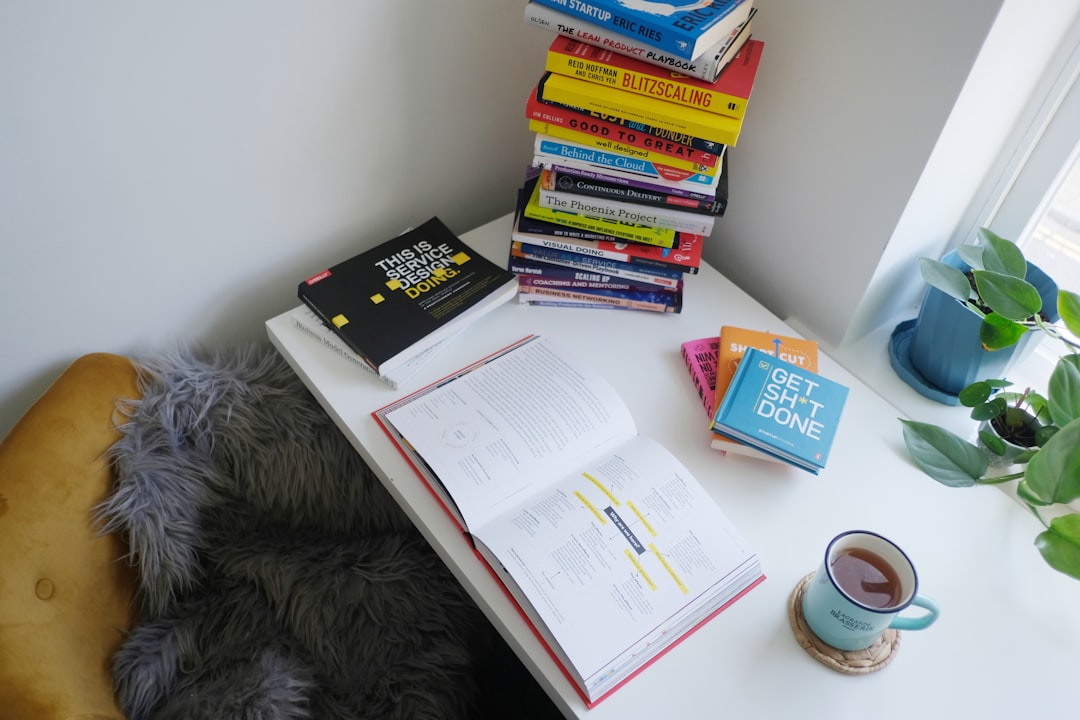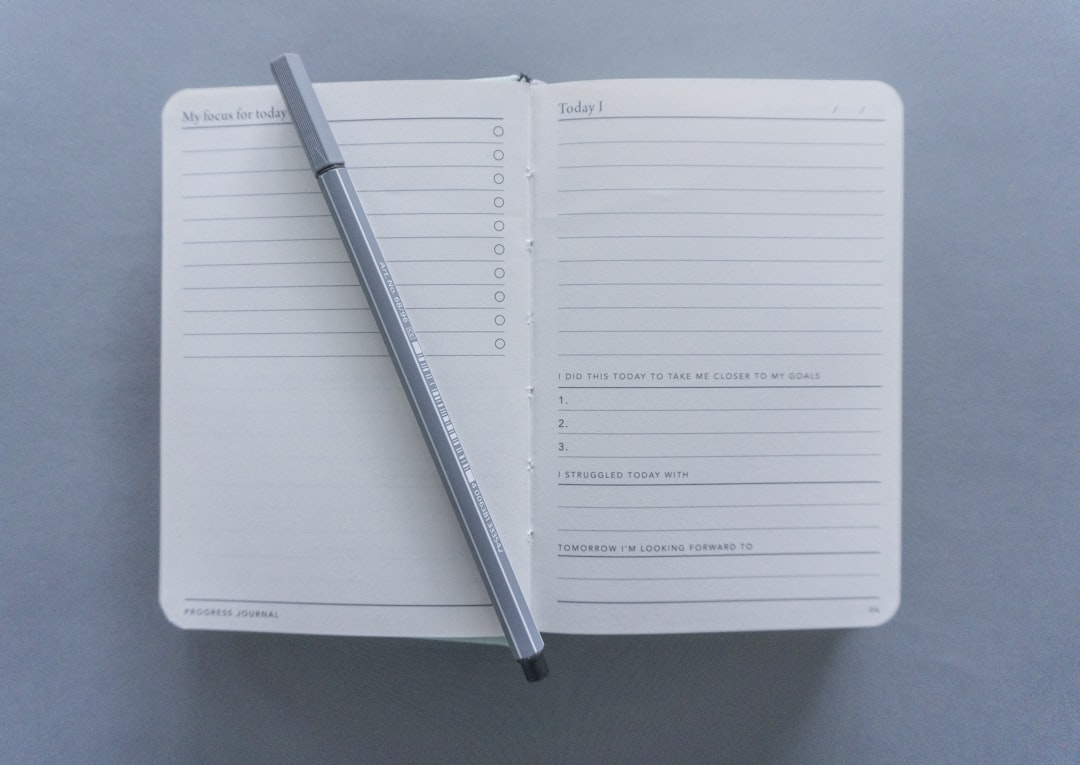Habits are powerful tools that can help us achieve our goals, stay organized, be productive, and even change our lives for the better. They are the small, seemingly insignificant actions that we do every day that can have a huge impact on our lives. Habits can be good or bad, and they can influence almost every aspect of our lives, including our health, relationships, and finances.
Research has shown that habits are formed in the brain through a process known as habituation. When we repeat a behavior over and over again, our brain automates that behavior, making it easier and more efficient for us to perform. This is why habits are so powerful – they provide a shortcut to our brain that allows us to complete tasks without having to think too much about them.
The power of habits has been recognized for centuries, with ancient wisdom advocating for the cultivation of good habits. Aristotle famously said, “We are what we repeatedly do. Excellence, then, is not an act, but a habit.” Similarly, Benjamin Franklin wrote in his autobiography that he set out to cultivate 13 virtues as habits, including industry, frugality, and humility.
In today’s fast-paced world, habits are more important than ever. They can help us stay focused, motivated, and on track amidst the chaos of our daily lives. And the great thing about habits is that they can be developed at any stage in life – it’s never too late to start cultivating good habits.
In this blog post, we will explore the power of habits, the science behind habit formation and change, and provide tips and tricks for building habits that stick. We will also provide examples of habits for personal growth and discuss the relationship between habits and productivity. By the end of this post, you will have a deeper understanding of the power of habits, and you’ll be equipped with the tools to cultivate habits that can help you achieve long-term success.
The Keystone Habit: The One Habit to Rule Them All
The idea of the “keystone habit” is a concept that has been popularized in recent years through books such as “The Power of Habit” by Charles Duhigg. The keystone habit is essentially the one habit that has the power to create a ripple effect of positive change throughout your life. It’s the habit that, once established, makes it easier to establish other positive habits and achieve your goals.
Identifying your keystone habit can be a powerful exercise in self-reflection and self-improvement. For some people, it might be establishing a consistent exercise routine. For others, it might be practicing mindfulness or meditation. The important thing is to find a habit that is both meaningful and manageable for you.
Once you have identified your keystone habit, it’s important to prioritize it in your daily routine. This might mean setting aside specific time each day to practice your habit, or incorporating it into your existing routine in a way that feels natural and sustainable.
But the benefits of the keystone habit go far beyond just establishing one positive habit. As you begin to see progress and positive changes in your life, you’ll be more motivated to continue building momentum and establishing other positive habits.
For example, if your keystone habit is exercising, you might find that as you become more consistent with your workouts, you start to make healthier food choices or establish a consistent sleep schedule. And because exercise is such a powerful mood booster, you may find that you’re more productive and focused throughout the rest of your day.
Overall, the keystone habit is a powerful tool for personal growth and improvement. By identifying and prioritizing this habit in your daily routine, you can create a ripple effect of positive change throughout your life and achieve your long-term goals with ease.
And because exercise is such a powerful mood booster, you may find that you’re more productive and focused throughout the rest of your day.
The Science Behind Habits: How Habits Are Formed and Changed
Habits are an integral part of our lives. We all have habits, some good, and some bad. In fact, studies show that almost 40% of our daily activities are habitual. The science behind habits is fascinating and understanding how they are formed and changed can be powerful in making positive changes in our lives.
Habits are formed through a process called “habituation.” It’s a bit complicated, but essentially, our brains are wired to recognize patterns and then create shortcuts for those patterns to save energy. When we repeat a certain behavior multiple times in a specific context, our brains start to associate that behavior with the context, so that eventually the context triggers the behavior without conscious thought. That’s how habits are formed.
Now, when it comes to changing a habit, it requires a bit more effort. Studies have shown that to break a habit, you need to replace the old habit with a new one. This is because the neural pathways associated with the old habit are already established in your brain, so it’s easier to reroute those pathways than to create new ones altogether.
One way to change a habit is through repetition. By repeating a new behavior consistently, you can create a new neural pathway that competes with the old one. As you repeat the new behavior and reinforce the new pathway, the old pathway becomes weaker and eventually disappears.
Another way is to change the context around the behavior. By changing the environment or situation where the habit occurs, you can disrupt the old neural pathway and create a new one. For example, if you always eat junk food while watching TV, you can change the habit by only allowing yourself to eat healthy snacks while watching TV.
It’s important to note that the time it takes to change a habit varies from person to person and depends on the complexity of the habit. Some habits can be changed in a few weeks, while others may take months or even years.
Understanding the science behind habits can be empowering. By knowing how habits are formed and changed, we can take intentional steps to create new habits and break old ones. This can ultimately lead to long-term success in our personal and professional lives.
Understanding the science behind habits can be empowering.
Building Habits That Stick: Tips and Tricks for Habit Formation
Habit formation can be a daunting task, but it is essential in achieving our long-term goals. Once we acquire habits, it becomes effortless to carry out tasks, and we save a lot of time and energy in the process. Habits help us to be more productive and to stay on track towards achieving our goals.
However, forming new habits is not easy. It requires a lot of discipline, consistency, and perseverance. In this section, we’ll explore the best tips and tricks to help you build habits that stick.
Start small and be consistent
The first step towards building a habit that sticks is to start small. Try not to overwhelm yourself with too many changes all at once. Choose one habit to focus on at a time and gradually build it up to a more significant challenge. This helps you build a solid foundation and increases your chances of success.
Set achievable goals and be consistent in your approach. Consistency is one of the most important factors in habit formation. Make it a daily habit to carry out your new behaviour, whether it’s going for a morning run, meditating for 10 minutes, or reading for 30 minutes every day. With time, the habit will become second nature, and you’ll be able to maintain it without much effort.
Use Triggers to Encourage Habit Formation
Triggers are events, actions, or conditions that cue us to perform certain habits. They help us to remember our new behaviours and make them automatic over time. It’s essential to identify triggers that can help reinforce your habits.
For instance, if you want to start drinking more water or take breaks regularly, use your smartphone or your watch’s reminder feature to remind you to do it. Similarly, if you want to start reading, you may put a book by your nightstand so you’ll remember to read before going to bed.
Accountability and Support
Accountability is vital in habit formation. Share your habit-building journey with friends, family, or colleagues to stay accountable. Make a public commitment to the habit and stick to it no matter what.
Enlist the support of people who have already formed good habits themselves. They can provide encouragement and hold you accountable when you’re struggling.
Reward Yourself
Rewards can be a powerful tool to keep you motivated and help you achieve your goals. Celebrate your progress whenever you reach a milestone. It makes the process more enjoyable and gives you something to look forward to.
Remember to choose rewards that align with your goals, such as treating yourself to a massage after hitting a fitness goal, indulging in a favourite food after eating more healthy meals or watching a movie after reading a chapter of a book.
Track Your Progress
Tracking your progress is an effective way to stay motivated and accountable. It allows you to identify areas where you’re excelling and others that you may need to work on.
Use a habit tracker like a bullet journal or an app that suits you. It’ll help you keep track of your progress, motivate you to stick to your habit, and identify any obstacles you should overcome.
Don’t Give Up Too Quickly
Habit formation takes time and effort, and you may face obstacles along the way. Stay committed and focused on your end goals. Don’t get discouraged by setbacks.
Remember that even if you fail to maintain a habit, you can always try again. Keep tweaking your approach until you find one that works.
In conclusion, effective habit formation is vital to achieving long-term success. By building habits that stick, you can make progress towards your personal and professional goals. Use the tips and tricks outlined above to help you build lasting habits that will take you to new heights of success.
Use Triggers to Encourage Habit Formation
Triggers are events, actions, or conditions that cue us to perform certain habits.
Habits for Personal Growth: Examples of Habits for Success
Creating good habits is critical to personal growth and success. Developing positive habits will set you on the path of achieving your goals and fulfilling your potential. Here are some powerful habits that you can incorporate into your daily routine to reach your full potential:
1. Read Every Day
Reading is one of the most important habits you can develop to expand your knowledge, sharpen your mind, and improve your critical thinking abilities. By reading every day, you’ll be able to stay informed about current events, learn from the experiences of others, and expose yourself to new ideas.
2. Exercise Regularly
Exercise is not only great for your physical health, but it can also improve your mental health and cognitive function. Regular exercise can improve your mood, increase your energy levels, and help you focus better. You can start small by incorporating a daily 20-minute walk or jog into your routine and gradually build up to more intense workouts.
3. Practice Gratitude
Gratitude is an essential habit that can bring more positivity and happiness into your life. You can start by keeping a gratitude journal and writing down three things you are grateful for every day. This simple practice can help you appreciate all the good things in your life and shift your focus towards the positive.
4. Set Goals
Setting goals is an important habit that can help you stay focused and motivated. By setting specific, measurable, and achievable goals, you can create a roadmap for your personal growth and success. Make sure to break down your goals into smaller, more manageable steps to avoid becoming overwhelmed.
5. Practice Self-Care
Self-care is a crucial habit that can help you avoid burnout, reduce stress, and improve your overall well-being. Engage in activities that you enjoy, such as reading, meditating, or spending time outdoors. Make sure to take breaks when you need them and prioritize your health and happiness.
These habits are only a few examples of the many positive habits that you can incorporate into your daily routine. Remember that building habits takes time and effort, but the rewards of personal growth and success are worth it. Start small, be consistent, and watch how these habits can transform your life!
3.
Habits and Productivity: The Relationship Between Habits and Efficiency
Habits form an integral part of human nature, and they impact on our daily lives in more ways than we may initially realize. In particular, habits play a crucial role in determining our productivity levels. Productivity, in turn, is a significant factor in determining our level of success in the long run. The relationship between habits and productivity is complex, and understanding it is essential for anyone seeking to reach their full potential.
The habits we adopt can either make us efficient or non-efficient depending on the type of habits we implement. Habits like procrastination, disorganization, lack of planning, and laziness are just a few examples of non-efficient habits that can limit our productivity. Conversely, habits like time management, prioritization, goal-setting, and focus are examples of efficient habits that can improve our productivity.
Creating and maintaining efficient habits is vital as it impacts on our ability to achieve our goals effectively. Furthermore, it ensures that we can optimize our time and resources in a manner that is most productive for us. For instance, people with excellent time management habits are better equipped to take on multiple tasks and complete them within a set timeline. This habit alone helps to increase productivity levels as a person can work on different tasks without feeling overwhelmed.
Habits also help to eliminate decision fatigue, which is a significant contributor to low productivity levels. Decision fatigue occurs when we have to make multiple decisions throughout the day, and it can lead to mental exhaustion, reducing our efficiency levels. Successful people like Steve Jobs and Mark Zuckerberg, for instance, were known for wearing the same outfit to work. The idea behind this was to free up mental space, let them focus on more critical decisions than choosing what to wear.
In conclusion, the relationship between habits and productivity is very complex, and it is essential to understand how it works to maximize efficiency in our daily lives. As mentioned, successful people have different efficient habits that contribute to their productivity levels, and we can learn from them. Developing efficient habits from the tips and tricks outlined in this post can elevate our productivity significantly, allowing us to reach our full potential.
As mentioned, successful people have different efficient habits that contribute to their productivity levels, and we can learn from them.
Conclusion: The Power of Habits for Long-Term Success
In conclusion, we can clearly see the potential of habits in shaping our long-term success. Habits are not something that you master overnight, but rather a continuous process that we need to work on consistently for achieving the desired outcome.
When you form habits that align with your goals, you are creating a way to make your future self consistent with your present self. Habits allow us to progress and grow further beyond our current capabilities while sticking to our objectives.
One of the most significant benefits of habit formation is the release of mental energy. By building habits, we reduce the amount of cognitive energy needed to complete everyday tasks, allowing us to focus more deeply on the tasks that genuinely require our attention.
Another benefit of habit formation is personal accountability. When you focus on making the right habits, you’re holding yourself accountable for your actions. Taking responsibility for your actions is crucial when trying to achieve personal growth and success.
Finally, habits help us create structure and routine in our lives, which helps us make more robust and informed decisions. With habits, there is less chance of being distracted and swayed by every influence on our day-to-day lives. By forming habits, we become our own guides and mentors, always pushing ourselves to the best we have to offer.
To sum it up, embracing the power of habits is a game-changer towards achieving personal growth and long-term success. By making the right habits, we can transform our lives for the better, allowing us to reach our fullest potential. So, start working on your habits today and embrace the lifetime impact they can have on your successes.





